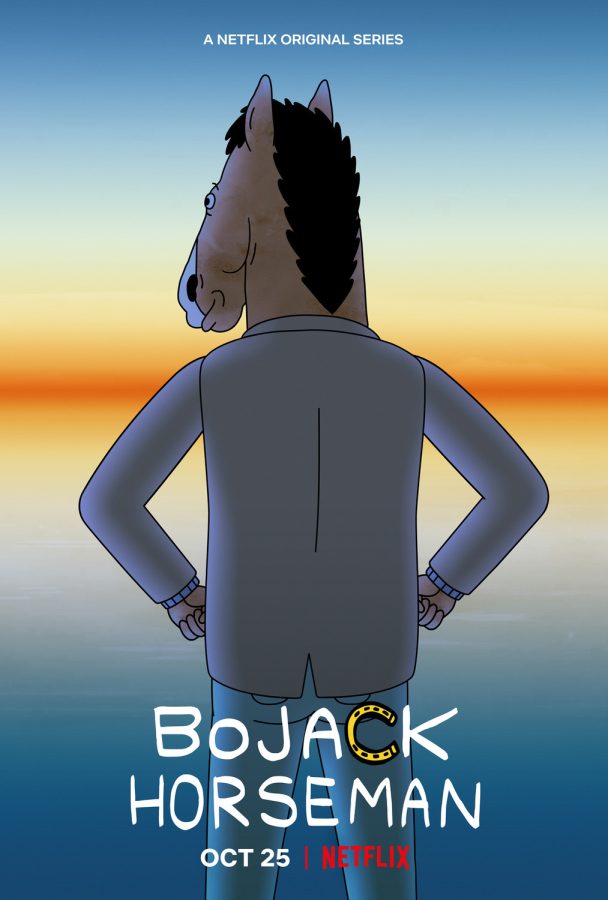BoJack Horseman: An Animated Comedy That Tackled Complex Issues
May 16, 2023
BoJack Horseman is an animated comedy directed towards adults that follows the life of an ex Hollywood star, BoJack, through his attempts of regaining recognition and fame. While the show is labeled as a comedy, it tackles much darker subjects such as depression, drug abuse, and generational trauma. The show aired on Netflix from August 2014 to January 2020, and still stands as a high quality show that brought attention to issues that weren’t yet part of mainstream cultural conversations. In particular, the show uses the character of BoJack Horseman to show how childhood trauma can affect our personal relationships in adulthood.
As the show starts, BoJack is an ex- star from the 90s trying to become relevant again by writing a book. He ends up hiring Diane as his ghostwriter and the story follows him facing mistakes he’s made in his past and owning up to them. As the show progresses, we watch him continue to make mistakes and struggle to own up to them; we also learn of the abuse he faced from his parents and the abuse they faced before him. Now, most people are aware of the term “generational trauma,” but in the years of the show’s run, that terms wasn’t part of our shared lexicon yet.
BoJack Horseman is a great representation of how recovery isn’t linear and apologizing for past mistakes doesn’t make them disappear. BoJack was a victim of his mother and father’s unstable marriage and their personal traumas that they never recovered from, which shaped him into an unstable and unpredictable person.
The show serves as a good and important commentary on how generational trauma and childhood trauma can continue through life and continue to harm a person if they do not make an effort to recover.











